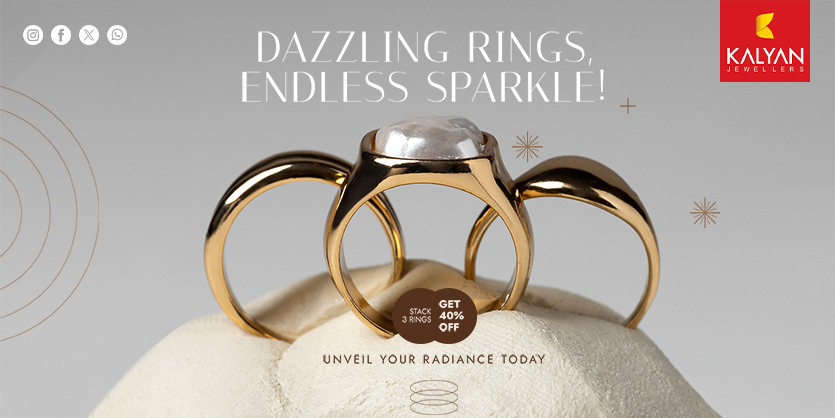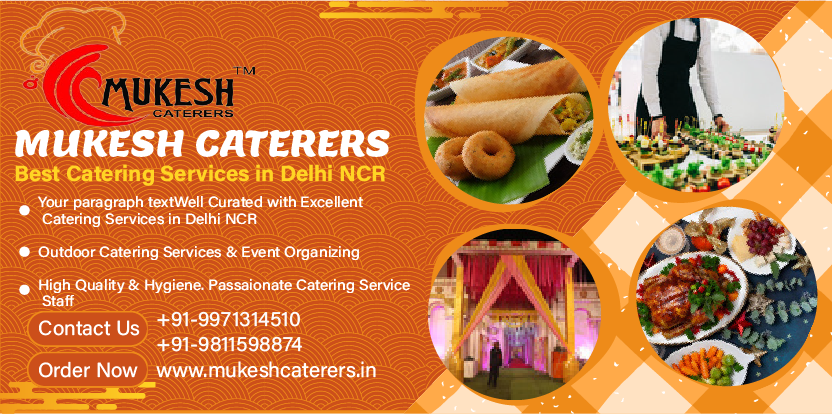 Languages
Languages
- Assamese Brides
- Assamese Grooms
- Assamese Matrimony
- Bengali Brides
- Bengali Grooms
- Bengali Matrimony
- Gujarati Brides
- Gujarati Grooms
- Gujarati Matrimony
- Hindi Brides
- Hindi Grooms
- Hindi Matrimony
- Kankani Brides
- Kankani Grooms
- Kankani Matrimony
- Kannada Brides
- Kannada Grooms
- Kannada Matrimony
- Kerala Matrimony
- Malayalam Brides
- Malayalam Grooms
- Marathi Matrimony
- Marwadi Matrimony
- Oriya Matrimony
- Parsi Matrimony
- Punjabi Matrimony
- Sindhi Matrimony
- Tamil Matrimony
- Telugu Matrimony
- Urdu Matrimony
 City
City
- Bangalore Brides
- Bangalore Grooms
- Bangalore Matrimony
- Calcutta Brides
- Calcutta Grooms
- Calcutta Matrimony
- Chennai Brides
- Chennai Grooms
- Chennai Matrimony
- Delhi Brides
- Delhi Grooms
- Delhi Matrimony
- Delhi Matrimony and Indian Climate
- Hyderabad Brides
- Hyderabad Grooms
- Hyderabad Matrimony
- Mumbai Brides
- Mumbai Grooms
- Mumbai Matrimony
- Pune Brides
- Pune Grooms
- Pune Matrimony
 State
State
- Andhra Pradesh Brides
- Andhra Pradesh Grooms
- Andhra Pradesh Matrimony
- Arunachal Pradesh Brides
- Arunachal Pradesh Grooms
- Arunachal Pradesh Matrimony
- Assam Brides
- Assam Grooms
- Assam Matrimony
- Bihar Brides
- Bihar Grooms
- Bihar Matrimony
- Chhattisgarh Brides
- Chhattisgarh Grooms
- Chhattisgarh Matrimony
- Goa Brides
- Goa Grooms
- Goa Matrimony
- Gujarat Brides
- Gujarat Grooms
- Kerala Brides
- Kerala Grooms
- Maharashtra Matrimony
- Odisha Matrimony
- Rajasthan Matrimony
- Tamil Nadu Matrimony
- Tripura Matrimony
 Religion
Religion
- Buddhist Brides
- Buddhist Grooms
- Buddhist Matrimony
- Christian Brides
- Christian Grooms
- Christian Matrimony
- Christian Matrimony India
- Hindu Brides
- Hindu Grooms
- Hindu Matrimony
- Jain Brides
- Jain Grooms
- Jain Matrimony
- Jewish Brides
- Jewish Grooms
- Jewish Matrimony
- Muslim Brides
- Muslim Grooms
- Muslim Matrimony
- Muslim Matrimony, Find Muslim Grooms and Bride for Merriage at Free Indian Matrimony
- No Religion Brides
- No Religion Grooms
- No Religion Matrimony
- Other Brides
- Other Grooms
- Other Matrimony
- Parsi Brides
- Parsi Grooms
- Parsi Matrimony
- Sikh Brides
- Sikh Grooms
- Sikh Matrimony
- Spiritual Brides
- Spiritual Grooms
- Spiritual Matrimony
 Caste
Caste
- Ad Dharmi Brides
- Ad Dharmi Grooms
- Ad Dharmi Matrimony
- Adi Dravida Brides
- Adi Dravida Grooms
- Adi Dravida Matrimony
- Adri Matrimony
- Agarwal Brides
- Agarwal Grooms
- Agarwal Matrimony
- Agnikula Kshatriya Brides
- Agnikula Kshatriya Grooms
- Agnikula Kshatriya Matrimony
- Agri Brides
- Agri Grooms
- Agri Grooms
- Agri Grooms
- Agri Grooms
- Agri Matrimony
- Ahom Grooms
- Ahom Matrimony
- Arora Matrimony
- Arunthathiyar Bride
- Arunthathiyar Matrimony
- Arya Vysya Brides
- Arya Vysya Grooms
- Arya Vysya Matrimony
- Baishya Matrimony
- Balija Brides
- Balija Matrimony
- Banik Matrimony
- Baniya Matrimony
- Barujibi Matrimony
- Besta brides
- Bhandari Brides
- Bhandari Matrimony
- Bhatia Matrimony
- Bhavasar Kshatriya Brides
- Bhavasar Kshatriya Grooms
- Bhovi Brides
- Bhovi Grooms
- Billava Brides
- Billava Matrimony
- Billavas Grooms
- Brahmin Brides
- Brahmin Grooms
- Brahmin Iyer brides
- Brahmin Matrimony, Brahmin Matrimonials Website in India
- CKP Brides
- CKP Grooms
- CKP Matrimony
- Caste No Bar Brides
- Caste No Bar Grooms
- Caste No Bar Matrimony
- Chamar Brides
- Chamar Matrimony
- Chambhar Brides
- Chambhar Matrimony
- Chandravanshi Kahar Brides
- Chandravanshi Kahar matrimony
- Chasa Matrimony
- Chaurasia Brides
- Chaurasia Matrimony
- Chettiar Brides
- Chettiar Matrimony
- Chhetri matrimony
- Coorgi Brides
- Coorgi Grooms
- Devadiga Brides
- Devandra Kula Vellalar Brides
- Devanga Brides
- Devanga Matrimony
- Dhangar Grooms
- Dhangar Matrimony
- Dheevara Matrimony
- Dheevera Brides
- Dhiman Matrimony
- Dhoba Matrimony
- Dhobi Brides
- Dhobi Matrimony
- Ediga Brides
- Ediga grooms
- Ezhava Grooms
- Ezhava Matrimony
- Ezhuthachan Brides
- Gabit Brides
- Gandla Brides
- Gandla grooms
- Ganiga Brides
- Garhwali Brides
- Garhwali Grooms
- Ghumar Matrimony
- Goan Brides
- Goan Matrimony
- Goud Brides
- Goud Matrimony
- Gounder Brides
- Gounder Matrimony
- Gowda Brides
- Gowda Matrimony
- Gudia Matrimony
- Gupta Brides
- Hyderabad Brides
- Inter Caste Brides
- Intercaste Matrimony
- Irani Brides
- Jaiswal Brides
- Jaiswal Matrimony
- Jangam Matrimony
- Jangram Grooms
- Jat Grooms
- Jat Matrimony
- Jat brides
- Jharkhand Matrimony
- KARNATAKA BRIDES
- Kalinga Matrimony
- Kalita Matrimony
- Kalwar Matrimony
- Kamboj Brides
- Kamboj Matrimony
- Kamma Grooms
- Kamma Matrimony
- Kansari Matrimony
- Kapu Brides
- Kapu Matrimony
- Karana Brides
- Karmakar Matrimony
- Karuneegar Matrimony
- Kashyap Matrimony
- Kayastha Matrimony
- Khandayat Matrimony
- Khandelwal Matrimony
- Khatri Matrimony
- Koli Brides
- Kongu Vellala Gounder Grooms
- Kongu Vellala Gounder Matrimony
- Konkani Brides
- Kshatriya Brides
- Kshatriya Matrimony
- Kudumbi Brides
- Kudumbi Grooms
- Kulal Brides
- Kulal Matrimony
- Kulalar Brides
- Kulalar Matrimony
- Kulita Matrimony
- Kumbhakar Matrimony
- Kumbhar Brides
- Kummari Brides
- Kunbi Matrimony
- Kuruba Grooms
- Kuruba Matrimony
- Kuruhna Shetty Matrimony
- Kuruhuna Shetty Grooms
- Lambadi Matrimony
- Leva Patel Brides
- Lingayath Brides
- Lingayath Matrimony
- Lohana Matrimony
- Lubana Matrimony
- Madiga Matrimony
- Madiga brides
- Mahajan Matrimony
- Mahendra Matrimony
- Maheshwari Brides
- Maheshwari Grooms
- Maheshwari Matrimony
- Mahishya Matrimony
- Mala Brides
- Mala Matrimony
- Mali Brides
- Mali Matrimony
- Mannuru Kapu Brides
- Mappila Matrimony
- Maratha Grooms
- Maratha Matrimony
- Maruthuvar Brides
- Maruthuvar Matrimony
- Matang Brides
- Matang Matrimony
- Meena Brides
- Mehra Matrimony
- Meru Darji Matrimony
- Mochi Matrimony
- Mogaveera Grooms
- Mudaliyar Matrimony
- Mudiraj Matrimony
- Munnuru Kapu Matrimony
- Muthuraja Brides
- Muthuraja Matrimony
- Nadar Grooms
- Nadar Matrimony
- Nai Brides
- Nai Matrimony
- Naidu Brides
- Naidu Matrimony
- Naik Brides
- Nair Grooms
- Nair Matrimony
- Nayaka Brides
- Nhavi Brides
- Padmasali Brides
- Padmasali Matrimony
- Pal Matrimony
- Panicker Matrimony
- Parkava Kulam Matrimony
- Parsi Brides
- Pasi Brides
- Patel Matrimony
- Patnaick Matrimony
- Pillai Brides
- Pillai Matrimony
- Prajapati Brides
- Prajapati Matrimony
- Rajaka Grooms
- Rajput Grooms
- Rajput Matrimony
- Ramdasia Matrimony
- Ravidasia Matrimony
- Reddy Matrimony
- Reddy brides
- SC Brides
- SC Matrimony
- ST Brides
- Sadgope Matrimony
- Saini Brides
- Saini Matrimony
- Saliya Matrimony
- Settibalija Brides
- Shetty Brides
- Shetty Matrimony
- Shimpi brides
- Sindhi Grooms
- Sonar Matrimony
- Soni Matrimony
- Sourashtra Matrimony
- Sundhi Matrimony
- Tamboli Matrimony
- Tanti Matrimony
- Teli Matrimony
- Thakur Matrimony
- Thigala Matrimony
- Thigala brides
- Thiyya Brides
- Thiyya Matrimony
- Tili matrimony
- Uppara Brides
- Vaddera Brides
- Vaishnav Matrimony
- Vaishnava Matrimony
- Vaishya Matrimony
- Vaishya Vani Grooms
- Valmiki Matrimony
- Valmiki brides
- Vaniya Matrimony
- Vaniya Matrimony
- Vaniya Matrimony
- Vaniya Matrimony
- Vanjari Grooms
- Vanjari Matrimony
- Vannar Brides
- Vannar Matrimony
- Vannia Kula Kshatriyar Matrimony
- Veerasaivam matrimony
- Vellalar Matrimony
- Veluthedathu Nair Brides
- Veluthedathu Nair Matrimony
- Vilakkithala Nair Brides
- Viswabrahmin Grooms
- Viswabrahmin Matrimony
- Viswakarma Matrimony
- Vokkaliga Matrimony
- Yadav Grooms
- Yadav Matrimony
 City
City
- Bangalore Brides
- Bangalore Grooms
- Bangalore Matrimony
- Calcutta Brides
- Calcutta Grooms
- Calcutta Matrimony
- Chennai Brides
- Chennai Grooms
- Chennai Matrimony
- Delhi Brides
- Delhi Grooms
- Delhi Matrimony
- Delhi Matrimony and Indian Climate
- Hyderabad Brides
- Hyderabad Grooms
- Hyderabad Matrimony
- Mumbai Brides
- Mumbai Grooms
- Mumbai Matrimony
- Pune Brides
- Pune Grooms
- Pune Matrimony
 Languages
Languages
- Assamese Brides
- Assamese Grooms
- Assamese Matrimony
- Bengali Brides
- Bengali Grooms
- Bengali Matrimony
- Gujarati Brides
- Gujarati Grooms
- Gujarati Matrimony
- Hindi Brides
- Hindi Grooms
- Hindi Matrimony
- Kankani Brides
- Kankani Grooms
- Kankani Matrimony
- Kannada Brides
- Kannada Grooms
- Kannada Matrimony
- Kerala Matrimony
- Malayalam Brides
- Malayalam Grooms
- Marathi Matrimony
- Marwadi Matrimony
- Oriya Matrimony
- Parsi Matrimony
- Punjabi Matrimony
- Sindhi Matrimony
- Tamil Matrimony
- Telugu Matrimony
- Urdu Matrimony
 State
State
- Andhra Pradesh Brides
- Andhra Pradesh Grooms
- Andhra Pradesh Matrimony
- Arunachal Pradesh Brides
- Arunachal Pradesh Grooms
- Arunachal Pradesh Matrimony
- Assam Brides
- Assam Grooms
- Assam Matrimony
- Bihar Brides
- Bihar Grooms
- Bihar Matrimony
- Chhattisgarh Brides
- Chhattisgarh Grooms
- Chhattisgarh Matrimony
- Goa Brides
- Goa Grooms
- Goa Matrimony
- Gujarat Brides
- Gujarat Grooms
- Kerala Brides
- Kerala Grooms
- Maharashtra Matrimony
- Odisha Matrimony
- Rajasthan Matrimony
- Tamil Nadu Matrimony
- Tripura Matrimony
 Religion
Religion
- Buddhist Brides
- Buddhist Grooms
- Buddhist Matrimony
- Christian Brides
- Christian Grooms
- Christian Matrimony
- Christian Matrimony India
- Hindu Brides
- Hindu Grooms
- Hindu Matrimony
- Jain Brides
- Jain Grooms
- Jain Matrimony
- Jewish Brides
- Jewish Grooms
- Jewish Matrimony
- Muslim Brides
- Muslim Grooms
- Muslim Matrimony
- Muslim Matrimony, Find Muslim Grooms and Bride for Merriage at Free Indian Matrimony
- No Religion Brides
- No Religion Grooms
- No Religion Matrimony
- Other Brides
- Other Grooms
- Other Matrimony
- Parsi Brides
- Parsi Grooms
- Parsi Matrimony
- Sikh Brides
- Sikh Grooms
- Sikh Matrimony
- Spiritual Brides
- Spiritual Grooms
- Spiritual Matrimony
 Caste
Caste
- Ad Dharmi Brides
- Ad Dharmi Grooms
- Ad Dharmi Matrimony
- Adi Dravida Brides
- Adi Dravida Grooms
- Adi Dravida Matrimony
- Adri Matrimony
- Agarwal Brides
- Agarwal Grooms
- Agarwal Matrimony
- Agnikula Kshatriya Brides
- Agnikula Kshatriya Grooms
- Agnikula Kshatriya Matrimony
- Agri Brides
- Agri Grooms
- Agri Grooms
- Agri Grooms
- Agri Grooms
- Agri Matrimony
- Ahom Grooms
- Ahom Matrimony
- Arora Matrimony
- Arunthathiyar Bride
- Arunthathiyar Matrimony
- Arya Vysya Brides
- Arya Vysya Grooms
- Arya Vysya Matrimony
- Baishya Matrimony
- Balija Brides
- Balija Matrimony
- Banik Matrimony
- Baniya Matrimony
- Barujibi Matrimony
- Besta brides
- Bhandari Brides
- Bhandari Matrimony
- Bhatia Matrimony
- Bhavasar Kshatriya Brides
- Bhavasar Kshatriya Grooms
- Bhovi Brides
- Bhovi Grooms
- Billava Brides
- Billava Matrimony
- Billavas Grooms
- Brahmin Brides
- Brahmin Grooms
- Brahmin Iyer brides
- Brahmin Matrimony, Brahmin Matrimonials Website in India
- CKP Brides
- CKP Grooms
- CKP Matrimony
- Caste No Bar Brides
- Caste No Bar Grooms
- Caste No Bar Matrimony
- Chamar Brides
- Chamar Matrimony
- Chambhar Brides
- Chambhar Matrimony
- Chandravanshi Kahar Brides
- Chandravanshi Kahar matrimony
- Chasa Matrimony
- Chaurasia Brides
- Chaurasia Matrimony
- Chettiar Brides
- Chettiar Matrimony
- Chhetri matrimony
- Coorgi Brides
- Coorgi Grooms
- Devadiga Brides
- Devandra Kula Vellalar Brides
- Devanga Brides
- Devanga Matrimony
- Dhangar Grooms
- Dhangar Matrimony
- Dheevara Matrimony
- Dheevera Brides
- Dhiman Matrimony
- Dhoba Matrimony
- Dhobi Brides
- Dhobi Matrimony
- Ediga Brides
- Ediga grooms
- Ezhava Grooms
- Ezhava Matrimony
- Ezhuthachan Brides
- Gabit Brides
- Gandla Brides
- Gandla grooms
- Ganiga Brides
- Garhwali Brides
- Garhwali Grooms
- Ghumar Matrimony
- Goan Brides
- Goan Matrimony
- Goud Brides
- Goud Matrimony
- Gounder Brides
- Gounder Matrimony
- Gowda Brides
- Gowda Matrimony
- Gudia Matrimony
- Gupta Brides
- Hyderabad Brides
- Inter Caste Brides
- Intercaste Matrimony
- Irani Brides
- Jaiswal Brides
- Jaiswal Matrimony
- Jangam Matrimony
- Jangram Grooms
- Jat Grooms
- Jat Matrimony
- Jat brides
- Jharkhand Matrimony
- KARNATAKA BRIDES
- Kalinga Matrimony
- Kalita Matrimony
- Kalwar Matrimony
- Kamboj Brides
- Kamboj Matrimony
- Kamma Grooms
- Kamma Matrimony
- Kansari Matrimony
- Kapu Brides
- Kapu Matrimony
- Karana Brides
- Karmakar Matrimony
- Karuneegar Matrimony
- Kashyap Matrimony
- Kayastha Matrimony
- Khandayat Matrimony
- Khandelwal Matrimony
- Khatri Matrimony
- Koli Brides
- Kongu Vellala Gounder Grooms
- Kongu Vellala Gounder Matrimony
- Konkani Brides
- Kshatriya Brides
- Kshatriya Matrimony
- Kudumbi Brides
- Kudumbi Grooms
- Kulal Brides
- Kulal Matrimony
- Kulalar Brides
- Kulalar Matrimony
- Kulita Matrimony
- Kumbhakar Matrimony
- Kumbhar Brides
- Kummari Brides
- Kunbi Matrimony
- Kuruba Grooms
- Kuruba Matrimony
- Kuruhna Shetty Matrimony
- Kuruhuna Shetty Grooms
- Lambadi Matrimony
- Leva Patel Brides
- Lingayath Brides
- Lingayath Matrimony
- Lohana Matrimony
- Lubana Matrimony
- Madiga Matrimony
- Madiga brides
- Mahajan Matrimony
- Mahendra Matrimony
- Maheshwari Brides
- Maheshwari Grooms
- Maheshwari Matrimony
- Mahishya Matrimony
- Mala Brides
- Mala Matrimony
- Mali Brides
- Mali Matrimony
- Mannuru Kapu Brides
- Mappila Matrimony
- Maratha Grooms
- Maratha Matrimony
- Maruthuvar Brides
- Maruthuvar Matrimony
- Matang Brides
- Matang Matrimony
- Meena Brides
- Mehra Matrimony
- Meru Darji Matrimony
- Mochi Matrimony
- Mogaveera Grooms
- Mudaliyar Matrimony
- Mudiraj Matrimony
- Munnuru Kapu Matrimony
- Muthuraja Brides
- Muthuraja Matrimony
- Nadar Grooms
- Nadar Matrimony
- Nai Brides
- Nai Matrimony
- Naidu Brides
- Naidu Matrimony
- Naik Brides
- Nair Grooms
- Nair Matrimony
- Nayaka Brides
- Nhavi Brides
- Padmasali Brides
- Padmasali Matrimony
- Pal Matrimony
- Panicker Matrimony
- Parkava Kulam Matrimony
- Parsi Brides
- Pasi Brides
- Patel Matrimony
- Patnaick Matrimony
- Pillai Brides
- Pillai Matrimony
- Prajapati Brides
- Prajapati Matrimony
- Rajaka Grooms
- Rajput Grooms
- Rajput Matrimony
- Ramdasia Matrimony
- Ravidasia Matrimony
- Reddy Matrimony
- Reddy brides
- SC Brides
- SC Matrimony
- ST Brides
- Sadgope Matrimony
- Saini Brides
- Saini Matrimony
- Saliya Matrimony
- Settibalija Brides
- Shetty Brides
- Shetty Matrimony
- Shimpi brides
- Sindhi Grooms
- Sonar Matrimony
- Soni Matrimony
- Sourashtra Matrimony
- Sundhi Matrimony
- Tamboli Matrimony
- Tanti Matrimony
- Teli Matrimony
- Thakur Matrimony
- Thigala Matrimony
- Thigala brides
- Thiyya Brides
- Thiyya Matrimony
- Tili matrimony
- Uppara Brides
- Vaddera Brides
- Vaishnav Matrimony
- Vaishnava Matrimony
- Vaishya Matrimony
- Vaishya Vani Grooms
- Valmiki Matrimony
- Valmiki brides
- Vaniya Matrimony
- Vaniya Matrimony
- Vaniya Matrimony
- Vaniya Matrimony
- Vanjari Grooms
- Vanjari Matrimony
- Vannar Brides
- Vannar Matrimony
- Vannia Kula Kshatriyar Matrimony
- Veerasaivam matrimony
- Vellalar Matrimony
- Veluthedathu Nair Brides
- Veluthedathu Nair Matrimony
- Vilakkithala Nair Brides
- Viswabrahmin Grooms
- Viswabrahmin Matrimony
- Viswakarma Matrimony
- Vokkaliga Matrimony
- Yadav Grooms
- Yadav Matrimony
Wedding Traditions in the Tamil Culture
Tamil Nadu has rich and distinct wedding customs and like all other parts of the country, the dominant communities are Hindu, Muslim and Christian. For the purpose of this post, we will elaborate on the wedding customs and rituals followed by Tamil Hindu, Muslim and Christian communities.
The Hindu Tamil wedding traditions have their basis in the sacred scriptures of the Vedas. They date back to almost four thousand years of tradition. A wedding in the Hindu tradition is considered a union of the couple as the bride and the groom prepare to fulfill their emotional, physical and spiritual goals of righteousness, pursuit of wealth and salvation of their souls. The rituals linked with the Hindu wedding ceremony highlight the complementary nature and the interdependence of a wife and husband relationship.
In comparison with other regions of India, Tamil weddings may not seem too extravagant, particularly when compared with the North Indian communities such as the Punjabis. However, Tamil weddings may be considered as lavish in terms of following traditions. People of this region give top priority to traditions and rituals and the correct manner in which the wedding rituals need to be performed. Weddings in Tamil Nadu are generally held over several days and despite not being too extravagant and pompous, they do pay a good deal of attention to the traditions and carry them out to the smallest of details. The run-up to Tamil Hindu weddings is marked by numerous pre-nuptial traditions. The Tamils are known for possessing their own individual customs of beginning the marriage functions.
The Tamil Hindu Wedding Ceremonies
A Tamil Hindu wedding ceremony has its foundation on thousands of years of values and faith. These weddings are all about traditions and rituals that take the centre stage. Most Tamil Hindu wedding ceremonies and celebrations begin some days prior to the main wedding and they are ripe with rituals that further promote the graciousness of a bride and a groom. The sacred rituals that are followed make for a stunning visual event.
Pre-Wedding RitualsBefore the marriage event takes place, the Brahmins of Tamil Nadu like to practice fasting and they try and fill their days with emphasis on daily prayers and pujas. There is a sequence of rituals that is performed prior to the wedding.
- Pandakaal Muhurtham – The marriage functions in a typical Hindu household begin with this specific ritual. It takes place on the day before the wedding. Both families have to offer prayers for a peaceful and an uninterrupted wedding. It is a short ritual that seeks divine blessings and it involves both the families to make sure that the wedding goes on without any kind of hindrances. After this ritual, the groom is given a warm welcome by the bride’s family with the traditional ‘aarti’ being performed. Sweets and savouries are offered to him. The sweets are usually sprinkled with rose water and a coconut is broken in front of him to ward off evil spirits.
- Sumangali Prarthanai – This is a prayer performed for the benefit of married women. `Sumangali’ refers to all those women who have the blessings of a harmonious married life. During this ritual, prayers are offered to all `sumangalis’. The bride-to-be has to pray to receive blessings for a married life full of bliss. It is interesting to note that all sumangalis need to wear a `madisar’ or a traditional nine-yard saree. The actual number of sumangalis that are invited for this special puja is always in odd numbers. After the conclusion of the puja, sumangalis are treated to a South Indian feast that is served on plantain leaves. This puja is very well covered and featured in the Hindi film, `2 States’ promoting Alia Bhatt as the bride.
- Vratham – This refers to fasting and it is done a day before the wedding takes place by the families of both the groom and the bride. Vedic hymns get chanted for divine blessings of gods and ancestors. This ritual is always presided over by a priest.
- Pallikai Thellichal – During this ceremony, nine kinds of grains are mixed in curd and filled into seven earthen pots which are decorated with sandalwood. The pots are immersed in water to feed the fish. This ritual is considered highly auspicious for the life journey ahead of the married couple. This ritual is also held a day before the marriage ceremony and it is performed by married women of both the families. This is done especially to look for blessings for the couple that is going to be betrothed.
- Naandi Shrardham - During this ritual, the families of the groom and the bride pray to their ancestors’ souls, Coconuts, betel leaves, supari, fruits, flowers, sweets and traditional clothes such as `veshti angavastram’ are offered to the Brahmins who are then requested to give their blessings to the couple.
- Nichayathartham or the Engagement – This ceremony starts with the Lord Ganesha Puja that is performed by the family of the bride. The family of the groom then gifts the bride jewellery, a new saree. The family of the bride also gifts the groom a set of new clothes. The groom and the bride then are asked to change into the new dresses that are gifted to them by each other’s family. Chandan tilak and kumkum are then applied on the forehead of the bride and the groom. A garland of flowers is then exchanged between the bride and the groom. They also exchange rings in the presence of their family members, relatives and friends. The bride is the main attraction of this ritual and the ceremony is presided over by a priest.
- Lagna Pathirikai – In the Tamil language, this ritual refers to an invitation for the wedding. After the engagement ceremony, the date of the wedding gets announced officially in front of the guests and this announcement is made by the priest. The role of the priest is a very important one in a Tamil marriage function. The reading of the Lagna Pathirikai is actually the announcement of the formalizing of the couple’s alliance and the muhurtham or the wedding date along with the venue planned for it. After this ritual, a sumptuous feast is served to all those who are present.
The actual Tamil Hindu wedding ceremonies involve a series of rituals. They are held usually in a wedding function hall. The wedding date is always set after consultation of the auspicious Hindu calendar. It is interesting to observe here that selected dates are not considered auspicious for weddings in a year and those periods are between 1st July and 15th August, 1st September to 15th October and from 1st December to 15th January. These are the main rituals of a Hindu Tamil marriage.
- Mangala Snaanam – This is the purification bath for the couple. This ritual happens on the dawn of the day selected for the wedding in the respective houses of the bride and the groom. Turmeric, kumkum and essential oils are applied to the bride and the groom before they take a purification bath to prepare for the wedding.
- Gauri Puja – Among all Hindu customs and traditions, this is a ritual that is performed by the bride alone on the day of her wedding. Once she is ready, she has to offer her prayers to Goddess Gauri, who is recognised as a purification symbol.
- Kashi Yatra – This is an interesting ritual where the groom has to pretend that he is not yet ready for the marriage and that he wants to go away on a holy pilgrimage to Kashi and lead an ascetic’s life. The groom is presented with a walking stick and some basic essentials such as a pair of slippers, an umbrella and some clothes for this intended journey. On noticing all this, the father of the bride has to stop him and convince him to marry his daughter. The groom finally listens to his advice and decides to accompany him to the wedding mandap to meet the bride. There is exchanging of garlands between the groom and the bride.
- Pada Puja – As part of this ceremony, the mother of the bride or the groom washes the feet of the groom with water, kumkum and chandan. After this ritual, the bride is called to make an entrance into the mandap.
- Maalai Matral – There is an exchanging of flower garlands that takes place three times here to start their holy union
- Oonjal or the Swing Ceremony – During this ritual, married women of both the families offer banana and milk to the groom and the bride while they are made to sit on a swing. Rice balls are then thrown on the couple as a symbol to ward off evil spirits.
- Kanyadaanam – This ceremony is very much similar to the ones that take place in Northern India. The father of the bride hands over his daughter to the groom. The groom has to give assurance to him and his mother-in-law that he will always look after the bride. This is a heartwarming ritual as the bride sits on her father’s lap when the father has to give away his daughter’s hand. This ritual is a symbol of a father giving away his daughter who always played in his lap during her childhood.
- Muhurtham – With this ceremony, the wedding rituals come to a close. The groom will apply sindoor or kumkum on the parting of the bride’s hair. This is followed by tying of the mangalsutra or the thali around her neck.
- Melam – All rituals that have been taking place during the wedding event are accompanied by melam. This is a group of varied percussion instruments that are used in Tamil Nadu. Mostly, it is naubat and naqqara
- Pala Dhanam - During this ritual, gifts have to be exchanged between the families of the groom and the bride. Every gift has to be responded with a return gift. This ritual has been ordained by the Vedic scriptures as an act that signifies mutual arrangements between both these families and it is founded on the principle of respect and equality for each other, regardless of their economic status in life. The return gesture showed by the family of the groom after receiving the gifts can never equal the precious gift of the bride herself that is given to the groom. Therefore, the same coin which is given to the family of the groom is returned back to the bride’s family as an acknowledgment of the priceless gift that they have received in the form of the bride, their daughter.
- Pradhana Homam – This is an important part of the homage that is paid to Agni, the God of Fire by the couple. The couple has to circumambulate around the fire and feed it as they are going around with ghee and nine kinds of twigs that are collected from holy trees as part of this sacrificial fuel. Fire or Agni is recognised by the Hindus as the mightiest power present in the cosmos and is considered as a sacred purifier and an all-round benefactor. Agni is invited to be one of the main witnesses of the sacred union of the couple. Therefore, the term is often heard in India as `Agni Saakshi’, meaning witness by fire.
- Treading on the Grindstone – The groom has to hold the left toe of the bride and help her to tread on a grindstone which is kept on the right side of a fire. This particular ritual is highly symbolic of a solid foundation for the couple’s union. The grindstone is a comparison to the entrance of her new house and each time she will step out of that new home, it will always remind her of her responsibilities towards the members of her new family.
- Saptapadi – The groom and the bride have to take seven sacred rounds of the mandap fire in this special ritual. This is the most important part of a Tamil Hindu wedding. The groom has to hold the left hand of the bride as he walks with her around this sacred fire. Every time the bride completes a circle around the sacred fire, she touches her feet to the grinding stone. This kind of an act also symbolises that she has full hope about her marriage turning out to be firm and steady as a grindstone. While taking the `pheras’, the groom has to recite a Vedic mantra or verse. The wedding ceremony finishes with Saptapadi. This ritual is followed by a feast for the guests that is organised by the father of the groom
- Sammandhi Maryathai – This is the first among three post wedding rituals in a Tamil Hindu wedding. During this ritual, both families will exchange gifts as a token of appreciation. The bride will then leave the house of her parents and accompany her husband to her new house.
- Grihapravesham – This is the entrance of the bride in the groom’s house. The mother of the groom will welcome the couple and an aarti will be performed. After this ritual, there is an informal reception and all guests are invited to a dinner feast to bless the newlywed couple.
- Valeyadal – During this ritual, the sister of the groom will gift the bride with a present of her choice and then wedding games are held for the enjoyment of the couple. As per the ancient traditions, this ritual was meant to be an ice breaker between the shy bride and the groom.
Tamil Muslim Wedding Rituals
There are close to four million Muslims living in the State of Tamil Nadu. The term `Tamil Muslims’ refers not only to the ethnic Tamils that follow Islam but also to a large range of various social groups that are identified by their faith in the religion of Islam and their links to the Tamil homeland.
There are several rituals that make up a Tamil Muslim wedding in the pre-wedding, wedding and the post wedding phase.
Pre-Wedding Rituals- Proposal and Acceptance – In principle, a proposal is necessary to be made by a marriage partner, generally the groom and the proposal has to be accepted by the bride. The proposals are usually made by the families of the groom to the families of the bride. In certain modern situations, the marriage partners have started to decide their future on matrimonial websites, family functions or even at their workplaces and then they request their parents to arrange their wedding. In many situations nowadays, the family elders seek the consent of the actual marriage partners before they make or accept a wedding proposal. The parents of the groom approach the bride’s family and make a marriage proposal. Once this proposal gets accepted, a mutual relationship begins between these families.
- Engagement and various other ceremonies – The engagement ceremony is known as the `rasam of mangni’. This is the occasion where rings are exchanged between the couple. The ornaments and the dress for this occasion worn by the bride are given by the groom’s family. It has to be remembered that In a Tamil Muslim wedding, a mangni has no legal bearing.
- Mehndi Ceremony – This ritual of henna application is carried out at the home of the bride on the eve of her marriage day. It could also be held a couple of days prior to the wedding. The female relatives of the bride get together at her place and anoint her with turmeric paste all over her body to bring out the glow in her skin’s complexion. Mehndi or henna is also applied to her hands and feet. This ritual has a total festive feel to it and the women sing traditional songs to the accompaniment of a dhol percussion instrument. As per customs, the bride cannot step out of her house from the time of this ritual to her wedding day. On rare occasions, the groom also visits the bride’s house for this ritual and the cousins of the bride apply henna on his palm.
- Baraat’s Welcome - The groom brings an entourage known as `baraat’ to the venue selected for the wedding. A music band will generally strike up few traditional songs at the time of their arrival. On arrival, the groom is treated with soft drinks and sisters and cousins of the bride will entertain the guests.
- Glass of Milk – This is one of the most popular Tamil Muslim marriage rituals. After the baraat arrives and everyone is treated to few soft drinks, sisters and cousins of the bride will also offer a glass of milk to the groom. As soon as he finishes drinking that glass of milk, they will ask him for money and while doing this, they will also hide his shoes or slippers. This amount will usually be settled by the father of the groom.
- Nikah – This is the main wedding ceremony in a Tamil Muslim function. It may be conducted at the bride’s home or at a function hall or in a mosque. A maulvi or a priest along with close family members and relatives will be present in this ceremony. The men and women will have separate seating arrangements. Fathers of the bride and groom have an important role to play in this ritual. The priest will recite verses from the Holy Quran and the `nikah’ gets completed after Ijab-e-qubul that signifies proposal and acceptance. The father of the groom will propose and the father of the bride will convey his assent. This mutual consent is a crucial part of the marriage to become legalised. Soon after the nikah is declared, an amount of meher or nuptial gift will be decided upon for the future protection of the bride whereby, in case of a divorce, the groom will agree to pay this amount to the bride. This part of the ritual is a mandatory one for the proceedings.
- Nikahnama - This is a document in which the contract of the marriage gets registered. It will contain a set of terms and conditions that have to be mutually agreed upon and respected by both the parties. This nikahnama allows the bride the right to divorce her husband. The contract will become legal once it is signed by the bride, the groom, the fathers of the bride and groom and the priest.
- Aarsimashaf – This part of the Tamil Muslim wedding ritual involves the Holy Quran being placed between the seated couple. They will be allowed to see each other only with the help of mirrors. The bride’s head is covered by a dupatta and prayers will be read under the supervision of the maulvi or priest. This ritual will be followed by dinner.
- Rukhsati – The family of the bride will bid her farewell after the dinner function before she leaves for her new house with her husband. The father of the bride will give her hand away to his son-in-law and will charge him to protect his daughter and to take good care of her.
- Welcoming of the bride – The mother of the groom will hold the Holy Quran above the head of her daughter-in-law when she enters her home for the first time after the marriage function.
- Chauthi – This ritual takes place on the fourth day after marriage and the bride gets to visit her home and meet her parents. She is given a warm welcome at her house when she is accompanied by her husband.
- Valima – This is a dinner reception that is hosted by the father of the groom and it is usually held on the very next day of the nikah. It is a joyous moment as it brings both the families together once again along with their relatives, friends and well wishers.
Tamil Christian Wedding Rituals
Tamil Christian weddings are always conducted in churches. They are a quiet and gracious affair. The bride is decked in a white dress with a veil that covers her face and the groom is dressed in smart suit. The bride also gets to wear a tiara or a small bunch of white flowers. She also holds a flower bouquet in her hands. The Tamil Christian wedding involves exchanging of wedding vows and bands by the couple.
Marriage ceremonies for Christians in the State of Tamil Nadu are mostly preceded by an ensemble of choir singers.
Pre-Wedding Rituals- Engagement Ceremony - The pre-wedding rituals for Christian Tamil weddings comprise mostly of the engagement ceremony. Rings are exchanged in this ritual.
- Bridal Shower - After the engagement ceremony, you can experience the bridal shower which is also known as the hen party. During this ritual, the bride is showered by gifts and she offers the female guests a strawberry cake with a hidden thimble. Whoever gets the thimble will have to agree to get married next. This is fun and games for the bride. This is also one of the most important pre-wedding customs in a Christian marriage in Tamil Nadu. It is hosted by the female relatives and friends of the bride. The purpose is to give blessings to the bride for a married life, full of bliss.
- Bachelor Party - The groom also gets to have his fill with the Bachelor Party where all his male friends and relatives would be invited. This is intended to be a wild party because it is supposed to be the groom’s last night in the role of a bachelor. Toasts are raised in this ritual. This is a stag party and a male version of the Bridal Shower and it is organised on the eve of the wedding day.
- Haldaat Ceremony - On few occasions, similar to the Hindu wedding customs in Tamil Nadu, the bride and the groom are applied sandalwood and turmeric pastes on their bodies before their wedding day. This is referred to as the `haldaat’ ceremony.
- A few hours before the wedding service, the female members of the groom’s family carry trays that are decorated to contain the Holy Bible, a veil, the wedding saree, traditional coconuts, almonds along with other dry fruits and Indian sweets to the home of the bride. The pastor of the family’s mother church is present at the bride’s house to bless the saree and he hands its over to the bride to prepare herself for the church service. The groom sends a car along with some relatives to have the bride picked up from her home, o be brought to the church for the wedding service.
On the wedding day, the groom will arrange to send a car which will pick the bride up and bring her to the church. The family of the groom will wait outside the church for the bride. The bridal couple will then walk down the aisle and the church hall to reach the place decorated for them at the altar. A priest shall wait for them and offer them his best wishes. He will then recite some hymns from the Holy Bible. This is followed by a sermon by the priest and it is known as `Homily’. This sermon covers the sacredness of the wedding ritual. After this reading, the priest will question the bridal couple to determine their consent for marriage.
- Exchanging of Vows – The couple exchange promises to stay with each other and support each other through good times and turbulent times and through thick and thin. The reason behind this exchange is to instill faith and love between the couple. After the exchange of vows, the couple gets blessed by the priest and the gathering in the church. The wedding ceremony concludes when the couple signs on the marriage register and they walk down the aisle, holding their arms. A copy of the signed page from this register is forwarded to the Registrar of Marriages.
- The Tamil Christian wedding service is just like any other ritual service in the western countries but there is one major exception. In place of a ring, the groom will place a mangalsutra or a thali around the bride’s neck. The mangalsutra is in the shape of a gold chain with a gold pendant which has the cross symbol embedded in it. For a Tamil Christian woman, the thali is a symbol that she is now a married woman. On some occasions, rings are also exchanged but this happens only during the engagement ceremony. Another major difference that is reflect in a Tamil Indian Christian wedding is that after the vows are exchanged, the groom is not asked by the presiding priest to kiss the bride in the church as kissing in public is still considered taboo in the nation.
- After the wedding ceremonial service is completed, the bridal couple walk down the church aisle to the background of church organ playing either the wedding march from Felix Mendelssohn’s `A Midsummer Night’s Dream’ or the bridal procession theme from Richard Wagner’s opera `Lohengrin’. As the couple marches down the aisle slowly, the congregation will shower flower petals and raw rice on them.
- Wedding Reception – The wedding mass is generally followed by a dinner reception. This is fun filled and a vibrant occasion. It could be described as a gala party and a grand affair as the bridal couple is welcomed by guests and there is showering of confetti over them. The newlywed couple then gets to cut the wedding cake and they feed each other before distributing the rest to the guests on this occasion. The Toastmaster for the dinner function offers a grand toast in honour of the bridal couple. After dinner, the reception party continues with dance and music with the background music provided usually by a live band of musicians. People love to swing to the tunes they play till it is time for the couple to leave the venue. After this reception function, the groom and the bride are given a glass of milk and bananas when they each home and this becomes a symbol of fertility and prosperity.
- Honeymoon – This ritual closes the wedding chapter in the life of the newlywed couple. It is a custom that the groom and the bride take off few days from their busy lives and go on a honeymooning vacation to their preferred destination.
Observations
Among the Hindu wedding functions, it is observed that the Hindu rituals are mostly based around the ancient sacred texts of the Vedas but on many occasions, the families bring in a modern touch for the sake of the young bridal couple. Many people do not realise this but during a Tamil Hindu wedding, the parents of the groom and the bride are considered to be as equally important as the bridal couple. Among various cases among the Hindus, the Iyers are known as a sub-sect of South Indian Brahmins for their unique wedding functions. As in the case of other Hindu weddings, The Iyer marriages last typically for three days. Their dress code is marked for being generally bare-chested with just a veshti worn by males and madisar or sarees for women. During the reception part of the wedding ceremonies, it is observed that guests would come dressed in formal suits as in western countries as far as men are concerned. Women are all decked up with silk sarees and flowers in their hair.
Among the Tamil Muslim wedding ceremonies, it is common to see the groom’s family paying the meher amount or the dower figure in excess of ten thousand rupees. Just like the mangalsutra or the thali worn by Tamil Hindu brides, Muslim brides wear a chain strung with black beads. It is known as `karugamani’ or kali poth lachcha’. This is tied around the brides’ necks by the elder female relatives of the grooms on the day of the nikah. Tamil Muslim women generally wear while dupattas as a symbol of modesty while they are travelling from one venue to another. These dupattas are draped all over their entire body on top of the sarees in a similar fashion as worn by Punjabi women.
It is also observed during a Tamil Christian wedding that the brides generally wear a white or an off-white dress or a saree and this may or may not be accompanied by a veil over their head. The tiara is also a frequent item that is worn over their heads. The flower girls and the bridesmaids wear dresses or sarees that complement or match the colour décor of the wedding venue. It is also found that in the past few years, Tamil Christian brides have started to opt for Western style of wedding gowns as well as veils for the service in the church. They prefer to wear a traditional saree made of silk for the marriage reception.
When it comes to wedding rituals, the Tamil people of India have become famous for their colourful customs. The rituals involved in weddings among all communities are not there just for their entertainment value but they represent a strong sense of observance, values and traditions of their respective religions. While being solemn, they never fail to become symbols of festivity. All males and females belonging to the bridal couple’s families have an opportunity of getting together in these joyous gatherings in order to celebrate the great occasion for their family. The mood is so contagious that the celebration spreads even to well wishers and friends of the bridal couple. They grace the ceremonies with their presence and have a good time in the bargain.
Every guest who gets a chance to visit a typical Tamil wedding ceremony, regardless of the community the marriage is being held in, will feel that he or she is entering the boundaries of a royal function. Most Tamil weddings will have a lavish display of gold like the functions people come across in Kerala. Visitors will also experience plenty of red hues and they will observe that the families of the bridal couple have paid much attention to small and finer details while making the wedding arrangements. One of the distinct features that are found in these unique Tamil weddings is the use of saffron and red colours. These colours impart richness to the wedding décor and they also symbolise sensuality and purity.


 Groom
Groom Bride
Bride / Male , 40 , Salem
/ Male , 40 , Salem















